38 School of Science students named to 2024 Top 100
April 17, 2024
The IU Indianapolis School of Science congratulates 38 students who have been named to the 2024 Top 100 list.
Read about the biology faculty, students, and staff making headlines. Check back regularly for the latest updates.
Filter selections
49 results found
38 School of Science students named to 2024 Top 100
April 17, 2024
The IU Indianapolis School of Science congratulates 38 students who have been named to the 2024 Top 100 list.
Hydrocephalus Symposium gathers researchers to address the debilitating brain condition
December 06, 2023
Hydrocephalus researchers from across the world gathered at the School of Science at IUPUI last month for the inaugural Hydrocephalus Research Symposium.
School of Science earns record-breaking $21.4 million in awards
August 29, 2023
Faculty earned a record-breaking $21,430,055 in proposals and grants awarded, outpacing previous fiscal year highs by more than $5 million.
School of Science researchers use AI to innovate insect discovery
April 26, 2023
A team of researchers at the IUPUI School of Science have developed an innovative use of Artificial Intelligence to discover new species of insects.
37 School of Science students named to 2023 Top 100
March 28, 2023
Each year, the IUPUI Office of Alumni Relations honors 100 outstanding undergraduate students who demonstrate excellence in three categories—academic excellence, campus leadership, and community engagement.
School of Science researchers named among top 2% of scientists on Stanford list
September 30, 2021
The ranking method is based on standardized citation metrics developed by a group of scientists led by a statistician at Stanford University.
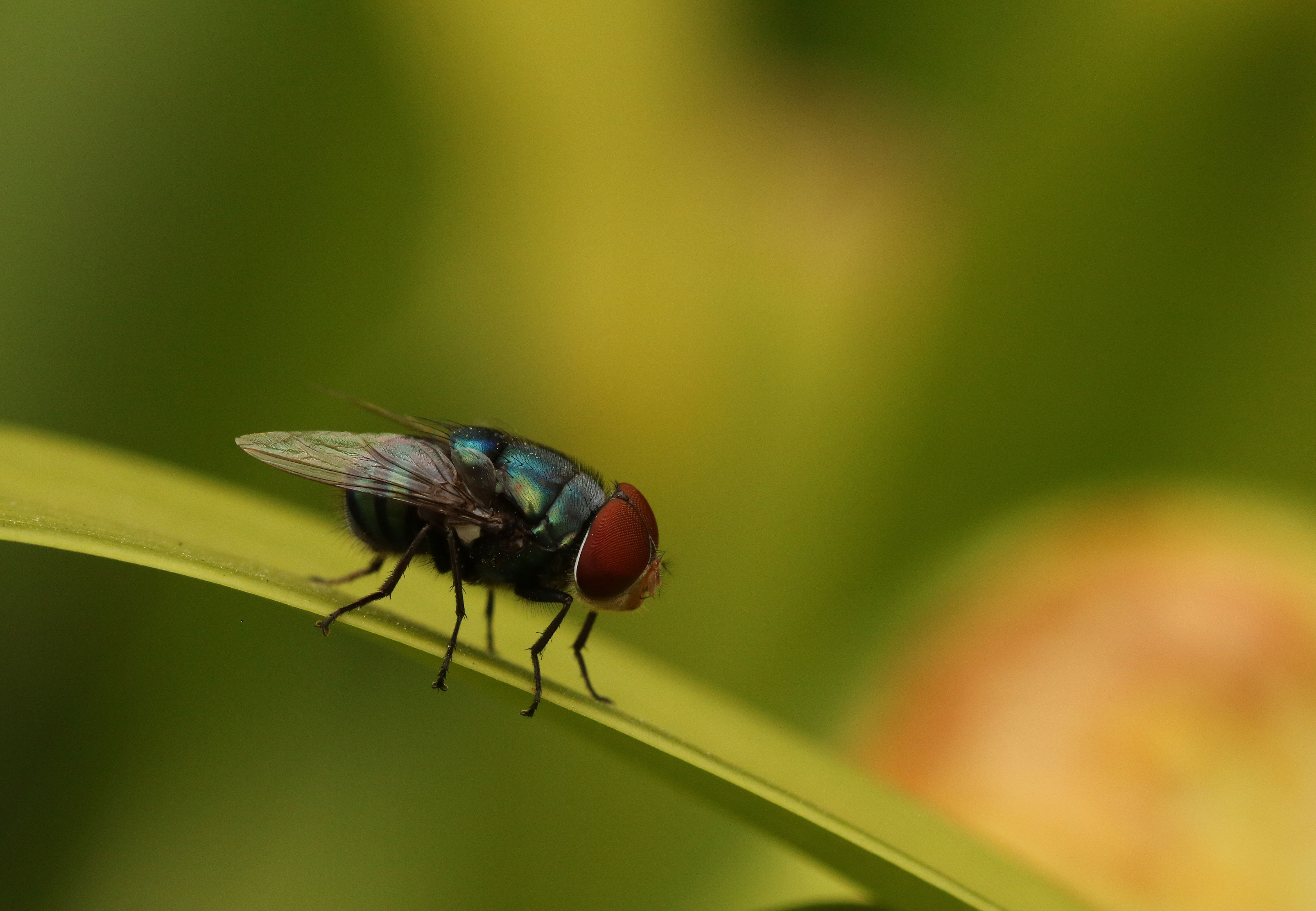
Blow flies may be the answer to monitoring environment in a non-invasive manner
April 14, 2021
A new study explores stable isotopes in blow flies as a non-invasive way to monitor the environment through changes in animals in the ecosystem.
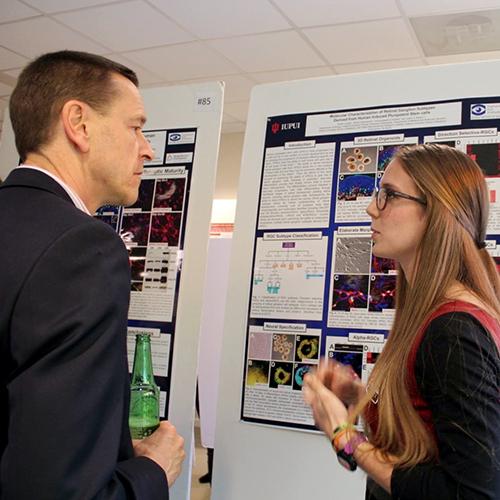
April 06, 2020
Kirstin VanderWall didn’t originally plan on becoming a research scientist, her first career choice was actually an athletic trainer. Her interest in biology would take her on a different path, eventually leading her to IUPUI’s School of Science.
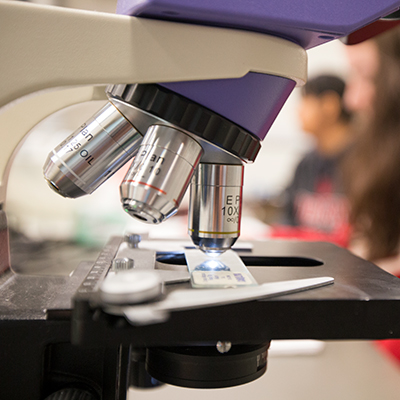
Biology department welcomes 12 graduate research students
October 09, 2019
With a myriad of research programs within the Biology Department at the School of Science, incoming biology graduate students are exploring a range of topics. This fall the department is welcoming 12 research students into its graduate program, studying topics ranging from fetal alcohol syndrome in zebrafish to DNA sequencing in flies.
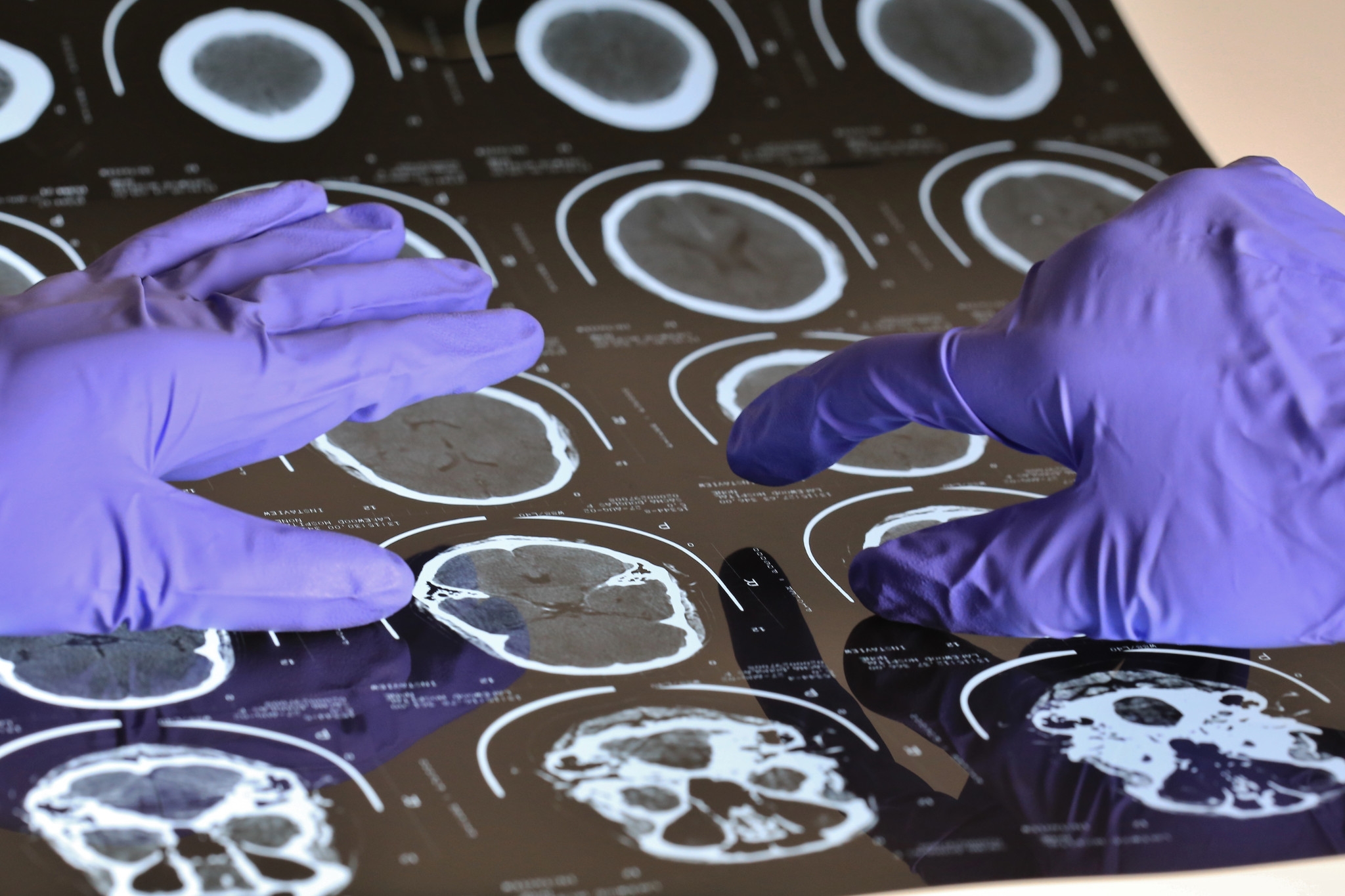
Drug treatment for hydrocephalus, or water on the brain, is the target of IUPUI research team
August 29, 2019
IUPUI biologist is leading a team that seeks to create a drug that will be the gold standard of care in treating hydrocephalus, known more commonly as "water on the brain," a condition that can occur at any age for a variety of reasons. It may lead to developmental delay, neurological decline, blindness, impaired motor function, dementia or death.
Dr. Sextuplet will see you now; one of the Dilley six graduates IUSM
May 13, 2019
Even at birth, Julian Dilley had a greater affinity for the hospital than his five siblings.
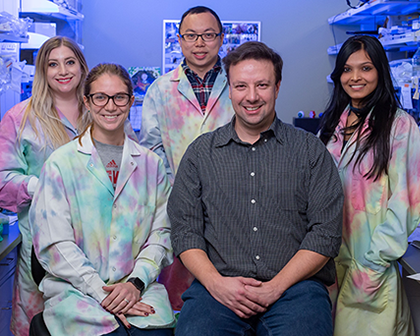
Lab Culture: Jason Meyer's focus on research, lab unity
February 22, 2019
Jason S. Meyer, associate professor of biology, has dedicated his life's work to the regeneration and understanding of the human retinal system -- lately, retinal ganglion cells -- through the growth and implementation of human induced pluripotent stem cells.